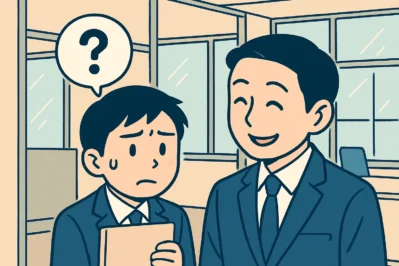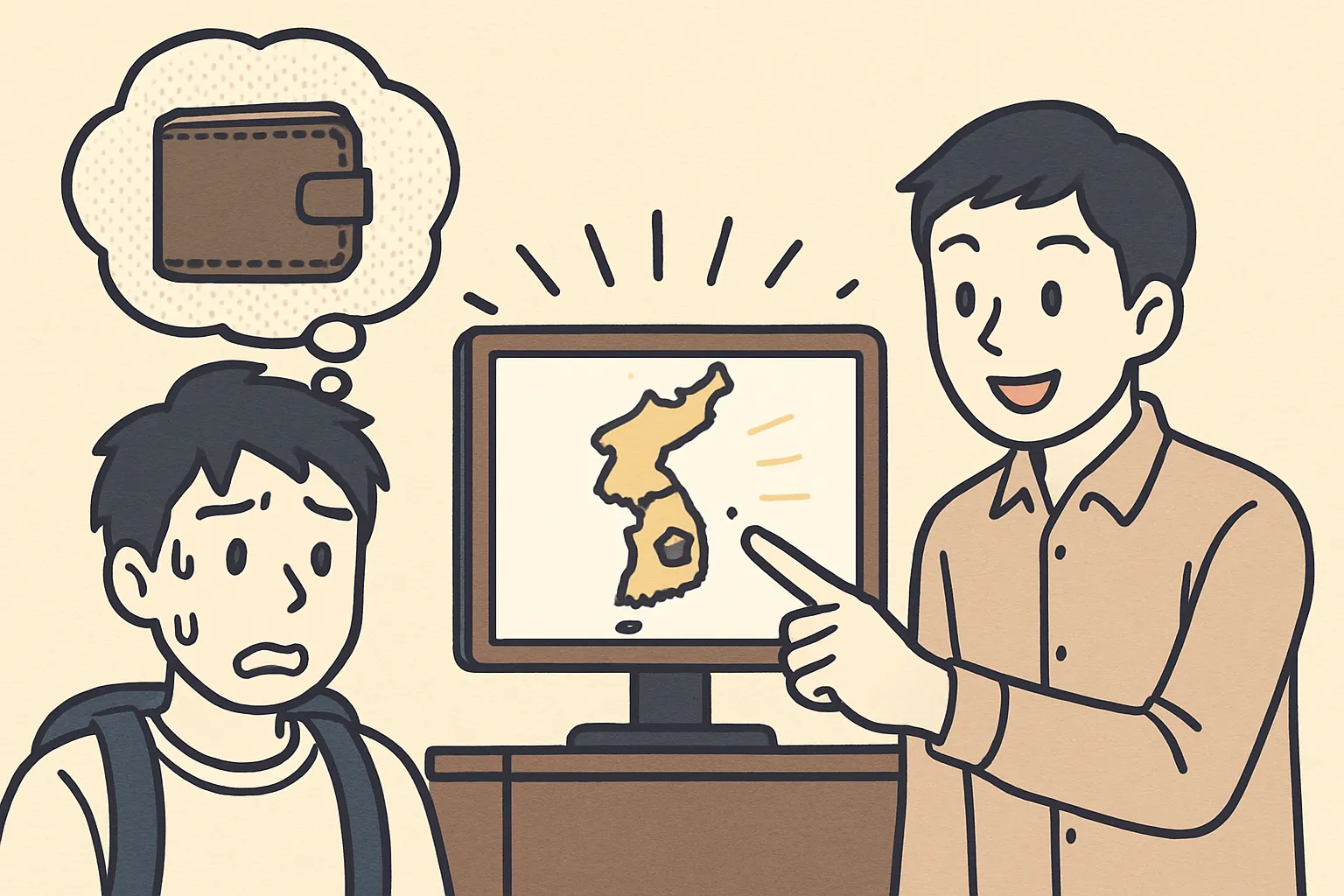Don’t Panic! Survival Korean for Your First Job in Korea
Hello! This is [Daily Hangul], here to upgrade your Korean skills!
Starting your first job can be nerve-wracking, especially in a new country! But don’t worry, we’ve got your back. Today, we’re going to learn some absolutely essential Korean phrases for asking for help and expressing gratitude to your colleagues. These expressions will make you look polite, eager to learn, and a fantastic team player.
These days in Korea, many companies have a strong mentorship culture. A senior colleague, called a “사수” (sasu), is often assigned to guide a new employee. This means asking questions isn’t just okay—it’s expected! So, let’s learn how to do it like a pro.
Core Expressions You Need to Know
Here are a few key phrases that will be your lifesavers at the office.
1. 저기… 혹시 질문 하나 해도 될까요? (Jeogi… hoksi jilmun hana haedo doelkkayo?)
- Pronunciation [Romanized]: Juh-gi… hok-shi jil-moon ha-na hae-do dwel-kka-yo?
- English Meaning: “Excuse me… could I possibly ask a question?”
- Detailed Explanation: This is the ultimate polite way to interrupt a senior colleague.
- 저기 (Jeogi) is a gentle way to get someone’s attention, like “Excuse me…”
- 혹시 (Hoksi) adds a layer of politeness, meaning “by any chance” or “perhaps,” making your request sound less demanding.
- This phrase is perfect for when you’re stuck on a task and need guidance from your boss or mentor.
2. 감사합니다 (Gamsahamnida)
- Pronunciation [Romanized]: Gam-sa-ham-ni-da
- English Meaning: “Thank you.” (Formal)
- Detailed Explanation: You probably already know this one, but it’s the single most important word at work. Always use the formal 감사합니다 (Gamsahamnida) with your superiors and colleagues you’re not close with. It shows respect and professionalism. Use it often!
3. 덕분에 많이 배웠습니다 (Deokbune mani baewotsseumnida)
- Pronunciation [Romanized]: Deok-boo-neh man-i bae-wot-sseum-ni-da
- English Meaning: “Thanks to you, I learned a lot.”
- Detailed Explanation: This is a golden phrase! Saying this after someone helps you is much more impactful than a simple “thank you.” It shows that you truly value their time and knowledge. Your senior colleagues will be very impressed to hear this. 덕분에 (Deokbune) means “thanks to…” and is a great way to give credit to someone.
Example Conversation
Let’s see how these phrases work in a real office situation. Imagine a new employee, Minjun (A), asking his senior mentor, Suji (B), for help.
A (Minjun): 저기, 수지 선배님… 혹시 질문 하나 해도 될까요?
(Jeogi, Suji seonbaenim… hoksi jilmun hana haedo doelkkayo?)
“Excuse me, Suji… could I possibly ask a question?”
B (Suji): 네, 민준 씨. 괜찮아요. 뭐 도와줄까요?
(Ne, Minjun-ssi. Gwaenchanayo. Mwo dowajulkkayo?)
“Yes, Minjun. It’s okay. What can I help you with?”
A (Minjun): 이 보고서 작성하는 방법을 잘 모르겠습니다.
(I bogoseo jakseonghaneun bangbeobeul jal moreugetsseumnida.)
“I’m not sure how to write this report.”
(Suji explains how to write the report.)
A (Minjun): 아, 이제 알겠습니다! 감사합니다! 덕분에 많이 배웠습니다.
(A, ije algetsseumnida! Gamsahamnida! Deokbune mani baewotsseumnida.)
“Ah, now I get it! Thank you! Thanks to you, I learned a lot.”
B (Suji): 천만에요. 모르는 거 있으면 언제든지 물어보세요.
(Cheonmaneyo. Moreuneun geo isseumyeon eonjedeunji mureoboseyo.)
“You’re welcome. If there’s anything you don’t know, feel free to ask anytime.”
Culture Tip & Trend Deep Dive: The “Sasu” (사수) System
In Korea, the relationship between a senior mentor, 사수 (sasu), and a junior mentee, 부사수 (busasu), is a huge part of office culture. Your






